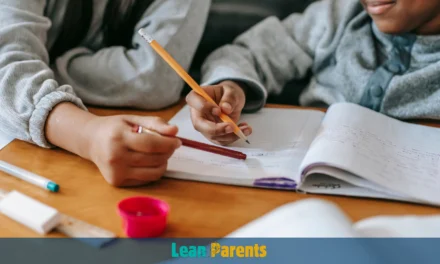Parenting is an incredibly rewarding yet challenging journey, filled with moments of joy, growth, and occasional frustration. In today’s fast-paced world, parents often find themselves juggling multiple responsibilities while trying to raise emotionally healthy children. One approach that has gained popularity for fostering a deeper connection between parents and children is mindful parenting. This practice encourages parents to stay present, compassionate, and non-judgmental in their interactions with their children. It not only helps create a calm, nurturing environment but also strengthens the bond between parent and child, encouraging mutual understanding and respect.
Mindful parenting can sound complicated, but with simple daily practices, you can integrate it seamlessly into your life. This article will explore the basics of mindful parenting, its benefits, and 12 easy ways to practice it daily. Let’s dive in!
What is Mindful Parenting?
Mindful parenting is a practice rooted in mindfulness, which is the ability to be fully present and engaged in the moment, without being distracted or overwhelmed by external pressures. When applied to parenting, it involves paying close attention to your child, responding to their needs with patience, and being aware of your own emotions in the process.
Unlike traditional parenting, which may often rely on quick reactions or decisions driven by stress, mindful parenting encourages thoughtful responses, allowing for a deeper connection with your child. It focuses on understanding the needs of both the parent and the child, fostering a balanced relationship that nurtures emotional and psychological growth.
Why is Mindful Parenting Important?
The importance of mindful parenting lies in its ability to transform the parent-child relationship into one based on empathy, communication, and respect. In an age where distractions are constant—whether from work, technology, or social obligations—mindful parenting calls for undivided attention to your child during interactions.
Mindful parenting is not just beneficial for children; it also significantly improves the well-being of parents. Studies have shown that parents who practice mindfulness experience lower stress levels, greater emotional regulation, and a deeper sense of fulfillment in their role as caregivers. It helps parents navigate the inevitable challenges of parenting with greater calm and resilience, creating a more positive home environment.
How Mindful Parenting Impacts Children
Children raised in a mindful parenting environment benefit immensely from the emotional stability and empathy that it fosters. Being raised by parents who model mindfulness teaches children how to process their own emotions in healthy ways, communicate their feelings openly, and approach problems calmly. It cultivates emotional intelligence in children and equips them with essential life skills such as patience, self-awareness, and kindness.
Moreover, children are more likely to develop a secure attachment to their parents when mindfulness is consistently practiced. This strong emotional bond contributes to their overall psychological well-being and supports healthy social and emotional development as they grow.
Emotional Regulation in Parents and Children

One of the most powerful effects of mindful parenting is the improvement of emotional regulation for both parents and children. Emotional regulation refers to the ability to manage and respond to emotional experiences in a healthy way. By practicing mindfulness, parents learn to pause, reflect, and respond thoughtfully rather than reacting impulsively out of frustration or stress.
Children, in turn, mirror this behavior. When parents model emotional regulation, children learn to manage their emotions more effectively, resulting in fewer tantrums and emotional outbursts. They begin to understand that it’s okay to feel frustrated or upset but that there are positive ways to cope with these emotions.
Reducing Parental Stress
Parenting comes with its fair share of stress, from balancing work responsibilities to managing household duties and attending to the emotional needs of your child. Mindful parenting offers a tool to manage and reduce this stress by encouraging parents to focus on the present moment rather than being overwhelmed by all that needs to be done. It helps parents take things one step at a time, promoting a sense of calm and control in everyday life.
Through mindfulness practices such as deep breathing or short meditation, parents can center themselves during moments of stress, which not only benefits their own mental health but also sets a positive example for their children.
Strengthening Parent-Child Bonds
At the core of mindful parenting is the intention to connect more deeply with your child. In today’s digitally-driven world, it’s easy to be physically present but mentally elsewhere. Mindful parenting requires parents to be fully engaged with their children, even during simple daily activities like playing, reading, or eating together.
By paying attention to your child without distractions, you show them that they are valued and heard. This reinforces trust and emotional security in your relationship. Over time, these small moments of connection build a strong, lasting bond between you and your child.
Being Present with Your Child
Mindful parenting starts with being fully present in your interactions with your child. This means putting away distractions like phones or work emails and giving your undivided attention to your child during conversations or activities. Children can tell when their parents are fully engaged, and it makes a significant difference in how they feel about themselves and their relationship with you.
Being present doesn’t mean you have to spend every minute of your day focused on your child. Even short, intentional moments of full presence can have a lasting impact.
Responding Instead of Reacting
Parenting often involves high-stress situations where it’s easy to react emotionally rather than thoughtfully. Mindful parenting encourages parents to take a pause before responding, especially in moments of frustration. Instead of reacting out of anger or annoyance, mindful parents assess the situation, consider their child’s perspective, and respond in a way that fosters communication and understanding.
This doesn’t mean letting bad behavior slide, but rather approaching discipline with empathy and patience, which often leads to better outcomes for both parent and child.
Practicing Self-Compassion
An essential part of mindful parenting is extending the same kindness and compassion you show your children to yourself. Parenting is hard, and no one gets it right all the time. It’s important to be gentle with yourself, acknowledging that mistakes will happen and that every day is an opportunity to learn and grow as a parent.
By practicing self-compassion, you model for your child the importance of self-care and self-acceptance, teaching them to be kind to themselves during difficult times.
12 Simple Ways to Apply Mindful Parenting Daily

Mindful parenting doesn’t have to be complicated. In fact, it’s often the small, intentional changes you make in your daily interactions that have the biggest impact. Here are 12 simple ways you can start practicing mindful parenting today:
Start the Day with a Mindful Routine
Begin each day with a few minutes of mindfulness. This can involve a short breathing exercise or simply setting an intention for the day, such as being patient or attentive with your child. This sets a positive tone for the day and helps you approach parenting with a calm, centered mindset.
Listen Attentively Without Interrupting
When your child is speaking, practice active listening. Avoid interrupting or immediately offering solutions. Instead, listen to understand, which shows your child that their thoughts and feelings are important.
Use Positive Reinforcement
Mindful parenting encourages the use of positive reinforcement rather than focusing on punishment. Praise your child’s efforts and good behavior, which reinforces their confidence and encourages more of the same.
Practice Deep Breathing Together
Teach your child the power of deep breathing to manage stress or frustration. When you’re both feeling overwhelmed, take a few deep breaths together. This simple practice can quickly diffuse tension and bring a sense of calm to both of you.
Model Emotional Awareness
Children learn by example. Model emotional awareness by acknowledging your own feelings and discussing them openly. This teaches your child that it’s okay to feel a range of emotions and that they can be managed in healthy ways.
Create a Calm Space at Home
Designate a space in your home where you and your child can go to relax and unwind. This can be a cozy corner with soft lighting and calming objects like books or toys. Having a calm space helps both parents and children take mindful breaks throughout the day.
Take a Mindful Break When Stressed
When you feel overwhelmed, take a step back and give yourself a mindful break. This could be a few minutes of breathing, stretching, or simply sitting quietly. When you return to your child, you’ll feel more centered and able to engage positively.
Express Gratitude Together
Make gratitude a daily practice by taking time to express what you’re thankful for together. This can be done during meals, before bed, or during quiet moments throughout the day. Gratitude helps shift focus from challenges to positive aspects of your lives.
Practice Letting Go of Perfectionism
Mindful parenting involves embracing imperfection. Let go of the need to be a perfect parent and accept that mistakes are part of the learning process. By doing so, you create a more relaxed and joyful environment for both you and your child.
Set Aside Time for Unstructured Play
Make time each day for unstructured play, where your child can lead the activity. This allows them to explore their creativity while you practice being fully present, without the need to control or direct the outcome.
Communicate with Empathy
When conflicts arise, approach conversations with empathy. Try to understand your child’s perspective before offering solutions or corrections. Empathetic communication fosters trust and openness in your relationship.
Incorporate Mindfulness into Family Rituals
Incorporate mindfulness into daily family rituals, such as meals or bedtime routines. This could be as simple as sharing a moment of silence before eating or reflecting on the day together before bed.
Encouraging Mindfulness in Children
Teaching mindfulness to children is a gift that will benefit them throughout their lives. Start by introducing simple mindfulness exercises, like deep breathing or mindful eating, and gradually build up to more complex practices. You can also use storytelling or guided imagery to help younger children grasp the concept of mindfulness.
Incorporating Mindfulness into Family Life
Mindfulness can be woven into various aspects of family life, from daily routines to special traditions. Consider setting aside time each week for a family mindfulness practice, such as a nature walk, a quiet meditation, or a shared moment of reflection.
Handling Negative Emotions Mindfully
Negative emotions are an inevitable part of parenting, both for you and your child. The key is to handle these emotions with mindfulness. When you feel anger, frustration, or sadness, take a moment to breathe and acknowledge the emotion before responding. This allows you to approach the situation from a place of calm, rather than letting the emotion take over.
Dealing with Resistance from Children
Mindful parenting isn’t always easy, especially when your child resists your attempts to connect or cooperate. Resistance is a normal part of a child’s development, as they test boundaries and assert their independence. However, instead of meeting resistance with frustration, mindful parenting encourages you to view these moments as opportunities for growth.
When your child resists, take a step back and try to understand what might be driving their behavior. Are they feeling misunderstood, tired, or overwhelmed? By addressing the underlying cause of resistance with empathy and patience, you can often resolve conflicts more effectively. Practice reflective listening—repeating back what your child says in a calm manner—to show that you are truly trying to understand their perspective.
In moments of defiance, try to stay grounded and avoid taking their behavior personally. Children, especially when younger, often act out as a way to express unmet emotional needs. By responding mindfully, you create a space where your child feels heard, which can help reduce future resistance.
Juggling Mindful Parenting with Daily Responsibilities
One of the biggest challenges parents face is how to incorporate mindful parenting while juggling a busy schedule. Work, household chores, and other obligations can easily pull you in different directions, making it difficult to stay present with your child. However, practicing mindful parenting doesn’t mean you have to sacrifice your daily responsibilities.
Instead, aim to integrate mindfulness into your daily routine. For example, while preparing meals or doing household tasks, invite your child to join you in the activity, creating a shared experience. Use these moments to engage in conversation, ask about their day, or simply enjoy each other’s company without distractions. You can also practice mindfulness during car rides, when helping with homework, or even while doing bedtime routines.
If you find yourself overwhelmed, remember that mindfulness starts with self-care. Take mindful breaks when needed and approach your responsibilities with a sense of balance, knowing that being fully present with your child, even for short periods, has a profound impact.
How to Cultivate Long-Term Mindful Parenting Habits

Mindful parenting, like any new habit, requires consistent effort over time. To cultivate a lasting mindfulness practice, start small and build gradually. Begin by choosing one or two mindful parenting techniques, such as deep breathing or active listening, and practice them daily. Once these become second nature, incorporate more strategies, such as setting time aside for mindful breaks or unstructured play.
Another key to long-term success is to involve the entire family in your mindfulness journey. Encourage your partner, older children, and even extended family members to adopt mindful practices in their interactions with one another. By creating a family culture of mindfulness, you reinforce the values of empathy, patience, and presence for everyone involved.
Tracking your progress can also be helpful. Keep a journal where you reflect on your mindful parenting experiences, noting what worked, what challenges you faced, and how your relationship with your child has evolved. Over time, you’ll be able to look back and see how these small, daily practices have significantly strengthened your bond with your child.
Addressing Common Challenges in Mindful Parenting
Even the most dedicated parents face challenges when trying to apply mindful parenting consistently. It’s important to acknowledge these obstacles and approach them with compassion. Here are a few common challenges and how to address them mindfully:
Handling Negative Emotions Mindfully
Both parents and children experience a range of emotions, and it’s essential to navigate these emotions mindfully. When you or your child is feeling angry or upset, take a moment to breathe deeply and acknowledge the emotion without judgment. Teach your child that it’s okay to feel upset, but also show them how to manage those feelings constructively by using calm words and actions.
Managing Expectations as a Parent
One of the challenges of mindful parenting is managing the expectations you set for yourself and your child. It’s natural to want the best for your child, but high expectations can sometimes lead to unnecessary pressure. Instead of expecting perfection, practice letting go of rigid goals and accept that both you and your child are works in progress. Celebrate small victories and growth along the way.
Dealing with a Busy Schedule
Life can be hectic, and finding time for mindful parenting may seem difficult. However, mindful parenting doesn’t require large chunks of time—it’s about quality, not quantity. Short, intentional moments of mindfulness, like sharing a few minutes of conversation or taking a deep breath together, can make all the difference.
FAQs on Mindful Parenting
What is the difference between mindful parenting and traditional parenting?
Mindful parenting focuses on being present, empathetic, and non-judgmental in every interaction with your child. Traditional parenting may often rely on automatic reactions or established rules, while mindful parenting encourages thoughtful responses that are tailored to the specific moment and your child’s needs.
How can I stay mindful when I’m feeling overwhelmed?
When you feel overwhelmed, practice a mindful pause. Take a few deep breaths, step away from the situation if possible, and give yourself time to center before responding. It’s also helpful to establish a regular mindfulness practice, such as meditation or breathing exercises, to strengthen your ability to remain calm in stressful situations.
Can mindful parenting help with behavior problems?
Yes, mindful parenting can be very effective in addressing behavior problems. By responding to misbehavior with empathy and understanding, rather than frustration, you teach your child how to manage their own emotions. This approach reduces the likelihood of power struggles and helps children feel more understood, leading to improved behavior over time.
How can I introduce mindfulness to my child?
Start with simple mindfulness exercises that are age-appropriate, such as deep breathing, mindful listening, or gratitude practices. You can also use guided mindfulness activities, like yoga or storytelling, to help younger children understand the concept. The key is to make mindfulness fun and engaging.
What should I do if my child resists mindfulness practices?
It’s natural for children to resist new routines, especially if they don’t fully understand the benefits yet. Be patient and persistent, and try to introduce mindfulness in playful, low-pressure ways. For example, you can turn mindfulness into a game by having your child focus on their breathing during a fun activity or by practicing mindful eating during a favorite meal.
How long does it take to see results from mindful parenting?
The impact of mindful parenting can vary, but many parents notice positive changes in their relationship with their child relatively quickly. The key is consistency—by practicing mindfulness daily, you’ll see gradual improvements in your communication, emotional regulation, and overall bond with your child over time.
Conclusion
Mindful parenting offers a transformative approach to raising children with empathy, patience, and presence. While the journey requires consistent effort, the rewards are immeasurable. By applying the 12 simple mindful parenting techniques discussed—such as starting your day mindfully, listening attentively, and incorporating mindfulness into your family routines—you’ll foster a more harmonious and connected relationship with your child.
Mindful parenting not only strengthens your bond with your child but also creates a calmer, more joyful home environment where everyone can thrive. Remember that the goal isn’t perfection but progress, and with each mindful interaction, you’ll be nurturing your child’s emotional well-being while also caring for your own.






Trackbacks/Pingbacks